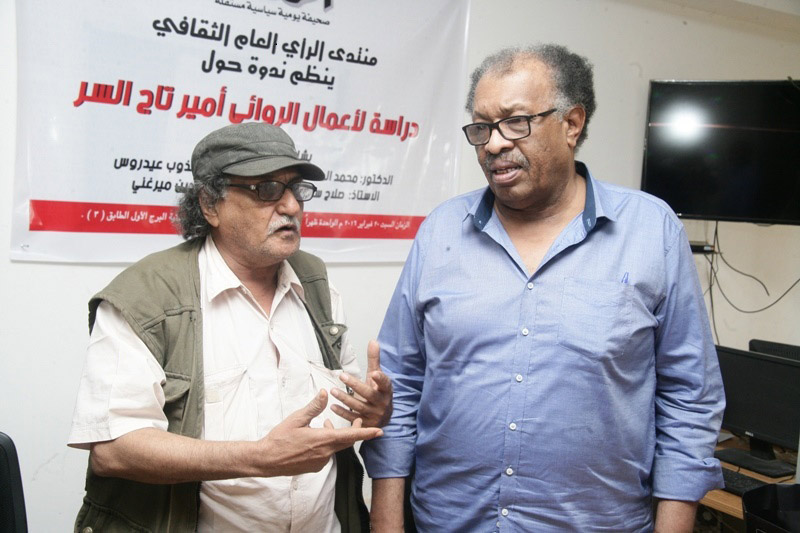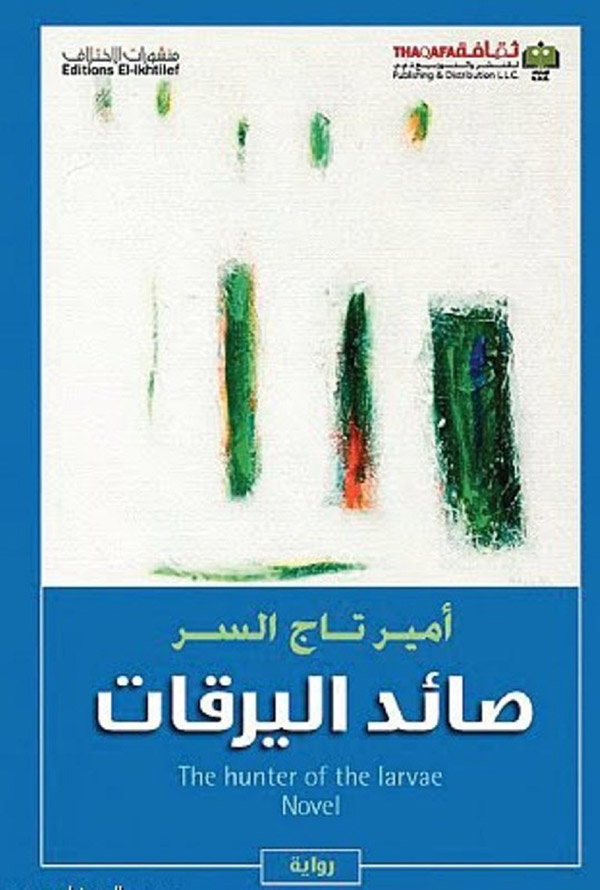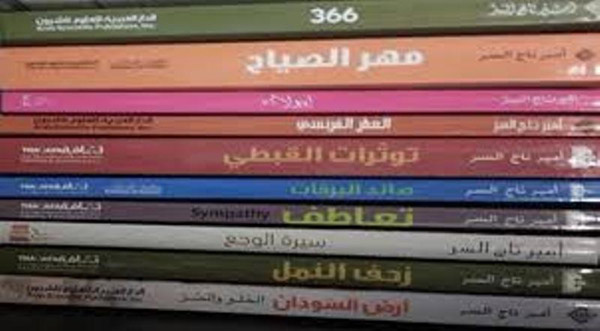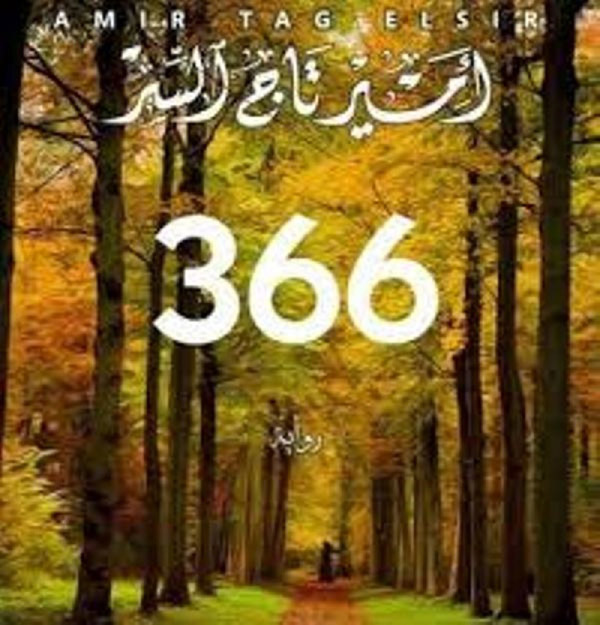Sudan' International Novelist: Amir Tag-Elsir to Sudanow
20 August, 2017
Sudan' International Novelist: Amir Tag-Elsir to Sudanow:
- Arab literature is still marginalized abroad.
- My project is based on humanitarian and human causes in general.
- Writers have to get rid of the narrative stereotypes and perform their own worlds.
- Tayeb Salih himself would not accept being considered the most important Sudanese novelists of all times
BY: MOHAMED NAJEEB MOHAMED ALI
Khartoum, Sudan ( Sudanow )-Amir Tag Elsir is one of the prominent Arab novelists in the last decades. He reached international fame through the translation of most of his works into other languages. His novel “366” won the Katara Prize for Arabic Novel in 2015, and his novel Sa’id al-Yaraqat (The Grub Hunter) was shortlisted for the Arab Booker Prize in 2011. Sudanese novelist and critic, Issa Ilhelon once said Amir Tag possess an integrated project, and each novel he writes completes the previous one. Still each of his novels is independent, and stands by itself. We put before him this package of questions and here is the interview:-
Booker Prize in 2011. Sudanese novelist and critic, Issa Ilhelon once said Amir Tag possess an integrated project, and each novel he writes completes the previous one. Still each of his novels is independent, and stands by itself. We put before him this package of questions and here is the interview:-
QUESTION: Many critics agree that the novels of Amir Tag can be classified within the philosophy of human thinking and the interpretation of history and that he exercises his natural right to record life as it is. What do you think of this statement?
- This is true to a certain extent. In fact, my project is based on humanitarian and human causes in general. It detects all the important issues which could be raised at this time and all times, such as poverty, ignorance, disease, and wars that destroy everything, included cities and ideas and cause homelessness, and lots of complications. Men and women have got the right to dream and to realize some of their dreams, but this does not happen very often. It is men’s and women’s right to decide how they should behave within themselves and in society, unfortunately, this is not the case in the third world full of constraints. I certainly benefited so much from this world in the construction of my experience, and the conception of novels such as “French perfume” with its protagonist Jarjare, “The Grab Hunter” with its protagonist Fanfare, and “Ebola 76” with its protagonist Luis Noa are explicit examples of how people cannot be separated from their social contexts. I am proud of my experience and my project, and I think that I revealed all that had to be revealed. Then comes the question of receiving and reading this project, and I am highly satisfied with it.
QUESTION: Most of the novels of Amir Tag were translated into other languages; do you think this is the path to world fame? Remark that you are one of the few novelists who write in Arabic and are famous at an international scale.
Amir Tag Elsir: Yes, many of my novels have been translated into about eight languages, they succeeded in some languages and they failed in others. In other words, some of my novels succeeded in English but not in French, some succeeded in Polish and Italian but not in English; but in general, I consider the enthusiasm of a number of international publishers for my experience a kind of success. Nevertheless, I note that not every writer whose works have been translated becomes famous. Fame comes from the interaction of the readers with the work, and from its utility for teaching in universities and institutes. But certainly, translation is important, the transfer of our literature to the other is also important. We aspire to the day when the Arab literature is not marginalized and is faithfully translated, read more seriously, and then, we can affirm the universality of Arabic literature and that it is at the same scale of other literatures.
QUESTION: The narrative thought that you offer is rebellious by its nature .Do you believe in the coexistence of a content and rhetoric that necessarily surpass all this resistance?
Amir Tag Elsir: I believe in excellence, in the sense that the writer has to reject the narrative stereotypes and perform his/her own worlds. This is concerning the techniques of writing, and then comes the content. The last is available and does not change often, but its importance varies according to time and space. For instance the idea of  terrorism and frightening innocent people has always existed, but only became widespread in recent years and then became an important axis in narrative writing. The idea of resorting to other countries also raised due to the wars and to the lack of security in some countries, and here there is no revolt, so half of the resistance has always been in the way the idea is expressed. I believe in the new experiences, those where I am overwhelmed by the artistic writing even if the content is not prodigious or important. I am always bewildered by novels with breathtaking imagination and dazzling language.
terrorism and frightening innocent people has always existed, but only became widespread in recent years and then became an important axis in narrative writing. The idea of resorting to other countries also raised due to the wars and to the lack of security in some countries, and here there is no revolt, so half of the resistance has always been in the way the idea is expressed. I believe in the new experiences, those where I am overwhelmed by the artistic writing even if the content is not prodigious or important. I am always bewildered by novels with breathtaking imagination and dazzling language.
QUESTION: You attend many Arab and international events, where can you place the Arab novel within the global novel?
Amir Tag Elsir: Arabic cultural events try to provide something that links the generations together. There we always share our different writing experiences, and evidently we greatly benefit from it, especially if there is a variety of writers and critics from multiple generations. As for cultural events, in Europe for example, we always evoke Arab literature, linking it to personal experiences. In fact, the Arab literature is still marginalized abroad, it is not considered seriously. Most of the works were translated in an individual manner through connections between the authors and the translators. Even the works that were translated brilliantly are not read appropriately. Unfortunately even Nobel Prize won by Mahfouz long years ago did not break the barrier of foreign reception of Arab literature, and I think that there is lot to be done so that Arab literature is considered important. I hope this happens soon.
QUESTION: Why is the writer best known outside Sudan? Is it because of publishing or because of media?
Amir Tag Elsir: I think it is because the burdens of life are reduced when the writer finds a good job in a country that welcomes him/her. When they are relaxed they can write and work on their project and even promote it through travels and permanent advertisement. I also think that the issue of promotion is no more difficult even for those  who live in Sudan. After the advent of the Internet and its effectiveness, any person can access simply by creating an account in Facebook and Twitter, and then they can get in touch with various publishers. The different resides in the intensity of the production and its unbalanced proportion between those who live abroad and those who live in Sudan and are more involved in the daily life and its difficulties.
who live in Sudan. After the advent of the Internet and its effectiveness, any person can access simply by creating an account in Facebook and Twitter, and then they can get in touch with various publishers. The different resides in the intensity of the production and its unbalanced proportion between those who live abroad and those who live in Sudan and are more involved in the daily life and its difficulties.
QUESTION: What does Amir Tag think of young Sudanese novel writers such as Baraka Sakin, Mansur Soeem, and Ann Elsafi ?
Amir Tag Elsir: The Sudanese novel, like any other young Arab novel, has developed large and sensitive topics such as the issue of identity. I have read some of these works, the novel of Sara Eljack “Khiyanataizzin” is distinctive, but far from home, I cannot know all the existing voices, but I encourage everyone who communicates with me through social media. Baraka Sakin, Mansur Soeem, and Ann Elsafi , and before them Buthayna Khedr and the great novelist Al-Hassan Bakri, all provided important writings in the Sudanese, Arab, and African narrative. I believe in their talents, and I am proud of what they offer. Al-Hassan Bakri wrote historical novels before us and did it excellently.
QUESTION: You already experienced writing historical and biographical novels, what is your narrative project?
Amir Tag Elsir: I spent long time writing, I wrote historical and contemporary novels and wrote poetry. I think that my project is clear. I write about my society, its culture and traditions, in connecion with the important issues. I do not deliberately intend to write a novel, but if the idea shines in my head I develop it and start writing.
QUESTION: What do you think of the existing Sudanese culture? 
Amir Tag Elsir: I think it is fine, despite all the difficulties experienced by the intellectuals. It is an ancient and deep rooted culture.
QUESTION: Has the novel become the Arab register, especially with the decline of poetry?
Amir Tag Elsir: Certainly! Now all the writers write a novel, unlike in the past when people started writing poetry or short stories, and would perhaps never write a novel.
QUESTION: According to some perspectives, Tayeb Salih is considered to be the most important Sudanese novelists of all times.
Amir Tag Elsir: This is wrong, naive and restraining. I never took it seriously and it should not represent a barrier to creativity. Tayeb Salih himself would not accept such saying. I think that this question must be definitely omitted from the interviews








